22 Best Anti Aging Vitamins According to Science
Scientists agree—these vitamins can help you look younger and feel stronger.
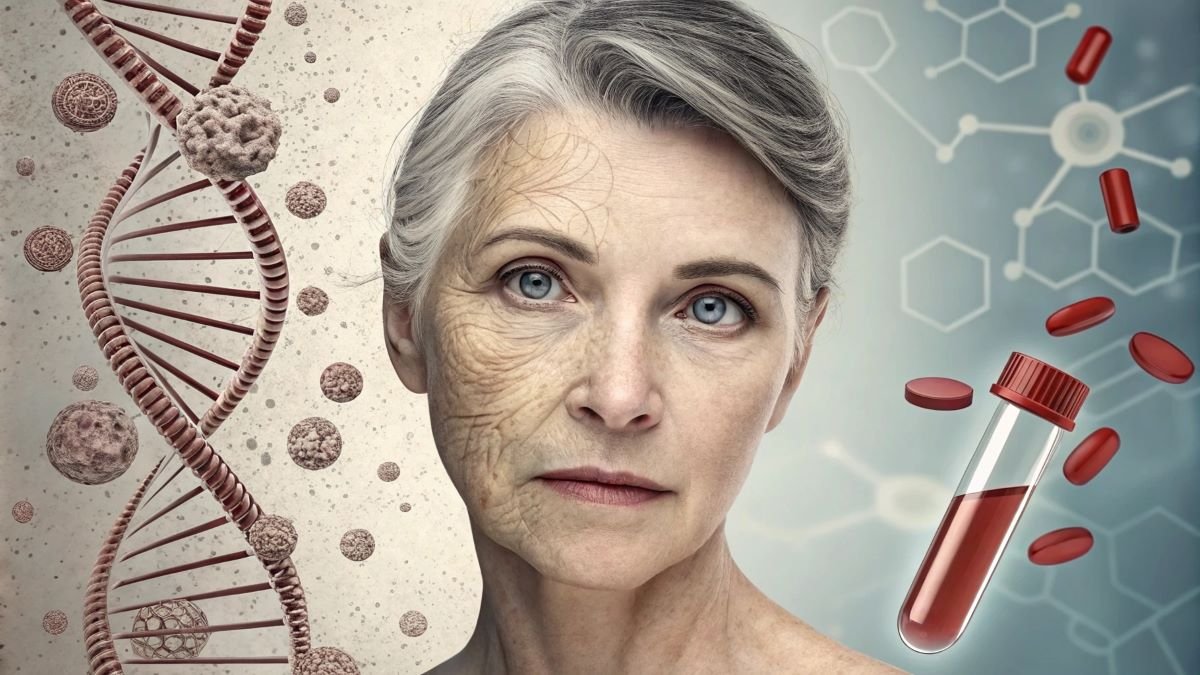
In this article I am presenting 22 of the best anti aging vitamins – backed by science – that will help you slow down the passage of time.
Time is constantly passing us by. To some, time seems to fly, whereas to others it seems as if it is dragging. Whatever your perception of the passage of time may be, one thing we must all accept is that it is inevitable.
As a result, we are constantly aging and growing older, but that doesn’t mean that we can’t still look and feel youthful, healthy, and invigorated.
Growing older is no walk in the park. Everything seems to become more of a challenge, other than gaining weight, which typically, becomes easier. As unfair as it may be, it is what it is and there is no point in stewing over the inevitable.
If you’re looking to improve your quality of life, be healthier, look healthier, and live longer, there are health supplements that you can use to help fight the ill-effects of aging.
To prove it, we’re going to be looking at 20 of them right now. We might not have yet discovered the fountain of youth, but with these supplements, we believe we’ve found the next best thing.
Best Anti Aging Vitamins
Here’s a look at the best anti aging vitamins and nutrients on the market right now.
1. Bakuchiol
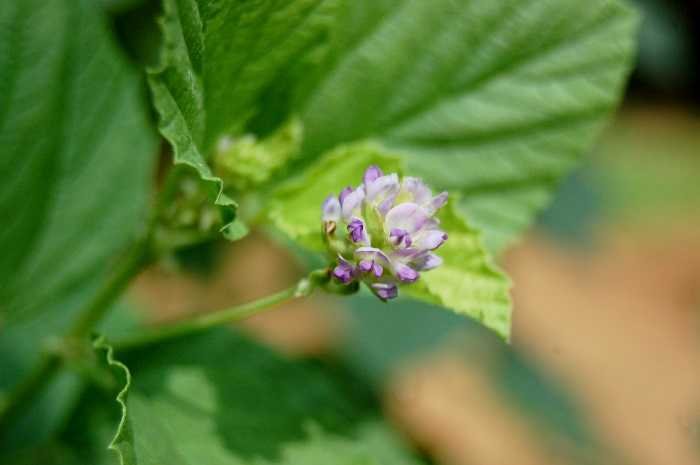
The first anti-aging supplement that we have on our best anti-aging vitamins list today is one that is hailed at the next retinol supplement. It’s one which few people have heard of just yet, although that will soon be changing as it grows in popularity.
Bakuchiol is a supplement which you will likely find in many a dermatologist’s supplement cabinet, and for good reason. Derived from vitamin A, it is widely regarded as one of the premium skin-care supplements currently in existence.
In fact, over the last twelve months, it has gained cult status, especially due to the fact that it has proved to be so effective when used to treat spots, blemishes, and acne.
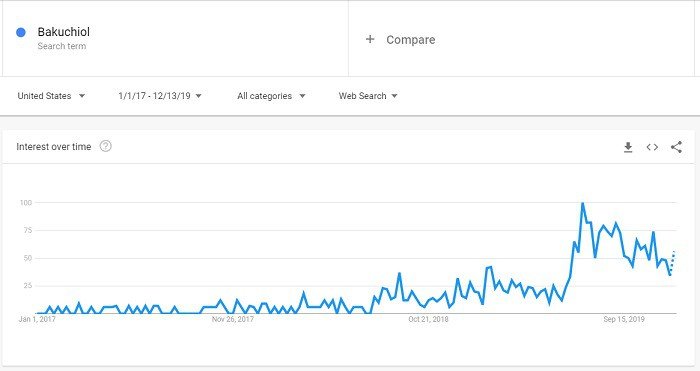
So, what on earth is it?
Well, Bakuchiol is derived from the seeds of a plant native to Eastern Asia. The plant is known as the Babchi plant (or Bakuchi or Psoralea Corylifolia). We might only now be hearing about it, but the plant itself has been a staple ingredient used in traditional Chinese and Indian medicine for hundreds of years.
It possesses powerful anti-inflammatory, antioxidant, and anti-bacterial properties which makes it a dream come true in terms of looking after the skin. Not only does it help to prevent bacteria building up which could cause acne, but it also helps to soothe inflamed skin, and the antioxidants promote healthy skin cells, which helps to keep the skin looking and feeling younger.
It is hailed as an alternative to retinol and can help to keep the skin looking youthful and healthy, and to help slow down the natural ill-effects of aging.
☝️ You can use/consume this plant in oil form, in powder form, consume its seeds or apply it on your skin as a serum/cream. Applying it on your skin is the recommended method to use to take advantage of its anti-aging properties to the fullest.
2. PQQ
Next up we have PQQ. PQQ stands for pyrroloquinoline quinone. To make life easier and save you a great deal more time, we’ll simply refer to it as PQQ from now on.
PQQ was once upon a time, thought to be a vitamin. However, thanks to the advancements in modern medicine, science, and research, we now know that this is not the case.
PQQ is an enzyme booster, or a cofactor, which possesses vitamin-like properties. It provides powerful antioxidant effects and benefits to the body, helping to eradicate harmful toxins and free radicals that could damage our cells after subjecting them to oxidative stress.
And yes, this does include the skin cells. PQQ is especially useful because it increases mitochondria. Mitochondria are found in the core of each cell, and they are responsible for generating energy in the form of ATP.
This, in turn, makes the cells more efficient, and healthier. The healthier your cells are, the healthier you will be. This, in turn, will benefit you on the inside as well as out.
3. Apigenin
Apigenin is next to make an appearance today. Apigenin is a powerful bioflavonoid that is found naturally within a variety of herbal ingredients – primarily in chamomile.

It is loaded full of antioxidants and it is actually found in particularly high dosages in chamomile tea. It helps to promote feelings of relaxation, and in higher dosages, because its antioxidant content is so high, it can even potentially help to fight illness and disease.
There is a lot of evidence to suggest that Apigenin could potentially serve as a natural supplement used in the treatment and prevention of certain cancers, which again, is due to its naturally high antioxidant content.
Apigenin supplements are commonly used by beauty looking to improve the health and appearance of their skin. This is because it has been found to help improve skin elasticity, whilst reducing the size and appearance of wrinkles.
This, combined with its powerful anti-inflammatory properties, making it one of the best anti aging vitamins for people trying to reduce the signs and symptoms associated with aging.
4. TMG (Trimethylglycine)
Another potent addition to the realm of anti-aging supplements is TMG, or Trimethylglycine. While not as widely known as some other compounds, TMG has been gaining attention for its potential to support overall health and combat aging.
Derived from sugar beets, TMG plays a crucial role in methylation processes within the body, which are essential for various bodily functions.
This versatile nutrient has been linked to promoting heart health by aiding in the metabolism of homocysteine, a compound associated with cardiovascular issues.
Furthermore, TMG’s ability to contribute to DNA methylation can influence gene expression and potentially slow down age-related changes.
As a result, including TMG in the realm of anti-aging supplements showcases its promise in helping individuals age gracefully and maintain vitality.
5. Resveratrol
Resveratrol, a natural compound found in grapes, red wine, and certain berries, has taken the spotlight as a captivating anti-aging supplement.
With a reputation as a potential key to the “French Paradox” – the notion that red wine consumption contributes to cardiovascular health despite dietary indulgences – resveratrol offers a host of benefits.
Its potent antioxidant properties have been associated with protecting cells from oxidative stress, a primary driver of aging.
Moreover, research has shown that resveratrol activates sirtuins (SRT1), proteins linked to longevity and cellular health.
By supporting cardiovascular function, combating oxidative damage, and potentially influencing longevity pathways, resveratrol claims its place as a compelling addition to the arsenal of anti-aging strategies.
6. Quercetin
Amid the array of anti-aging contenders, Quercetin emerges as a plant-derived compound that holds remarkable potential.
Abundant in foods like apples, onions, and berries, quercetin is celebrated for its wide-ranging health benefits. As an antioxidant, it aids in neutralizing harmful free radicals, which can accelerate aging processes.
Additionally, quercetin exhibits anti-inflammatory properties, which contribute to its role in supporting cardiovascular health and immune function.
Some studies suggest that quercetin might even extend lifespan by influencing cellular pathways associated with longevity.
7. Spermidine
In the pursuit of anti-aging solutions, Spermidine has garnered attention for its intriguing properties. Found in various foods, including wheat germ, soybeans, and aged cheeses, spermidine showcases its potential as a longevity-promoting compound.
Research indicates that spermidine might induce a process called autophagy, which is the body’s way of cleansing and rejuvenating cells.
By promoting this self-renewal mechanism, spermidine could help mitigate the accumulation of damaged cellular components over time. This, in turn, might contribute to healthier aging and a lowered risk of age-related diseases.
8. Curcumin
Recently, turmeric supplement sales shot through the roof. People began noticing just how effective turmeric supplements could be in terms of health and well-being, and the product is now more popular than ever.

The main reason why turmeric (Curcuma Longa) is so healthy and beneficial is because of an active compound it contains, known as curcumin.
Curcumin functions as a natural, hugely powerful anti-inflammatory. This helps to promote skin cell health, it regenerates damaged skin cells, it eases pain and inflammation, and it can help to give the skin a healthy glow and feel.
As well as that, curcumin has also been found to speed up wound healing, and it can help to prevent acne scarring, which can make the skin look unhealthy and look older than it actually is. In the world of health and beauty, curcumin supplements are gaining popularity by the day.
Add the benefits listed above, to the fact that it is such a powerful antioxidant, it’s easy to see why curcumin is quickly emerging as one of the most popular and best anti aging nutrients on the market today.
9. Vitamin A
Now we have one of the most popular vitamins in existence when it comes to anti-aging. Yes, we’ve got vitamin A. Vitamin A is made up of a collection of compounds, including its active forms: Retinol, retinal, and retinoic acid, as well as carotenoids such as beta-carotene, which functions as an antioxidant.
If you are exposed to UV rays from the sun a lot, this can cause the skin to become dry, wrinkled, and leathery. Vitamin A is very useful because it helps to protect the skin from harmful UV rays which can slow the aesthetic signs of premature aging. In terms of your appearance, Vitamin A is especially beneficial because it has been found to promote the production of fibroblasts.
Fibroblasts are cells that are responsible for the development of tissue within the skin that help to keep it healthy and firm. This will keep the skin healthy-looking, it will keep it firm and elastic, it helps to prevent wounds and damage, and it keeps it hydrated and soft.
10. Vitamin D
Vitamin D is also known as the sunshine vitamin. The reason for this is that, when exposed to rays from the sun, a chemical process within our bodies allows us to naturally synthesize this vitamin.
Rays from the sun do not emit vitamin D as some people believe, but rather, they allow us to generate the vitamin naturally, which is just as good.
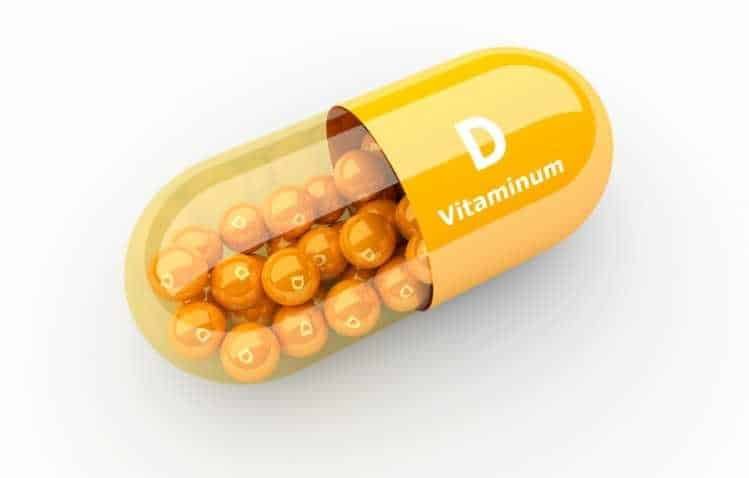
But why is this important?
Well, because a vitamin D deficiency can affect your health in a variety of ways, especially in terms of the ill-effects of aging.
Vitamin D deficiencies can leave the skin looking pale, saggy, wrinkled, and looking older and unhealthier than it should be.
Vitamin D is a fat-soluble vitamin that can negatively impact the appearance and health of your skin. Your skin, or your epidermis, as it is scientifically known, is the largest organ in your body. Yes, your skin is actually an organ.
Vitamin D helps to prevent the signs of skin aging by lengthening the size of telomeres. Telomeres are caps of genetic material which are located on the free ends of your DNA strands.
The shorter they are, the more wrinkles the skin has, the less elastic it becomes, and the unhealthier it looks.
As vitamin D helps to lengthen them, you get a good idea as to why vitamin D supplements are so beneficial for people looking to improve the appearance of their skin and fight the signs of aging.
Vitamin D also promotes healthy bones and joints as it enables calcium to be absorbed into the bones, where it strengthens them. Osteoporosis and brittle bone disease are both very common health issues experienced by people as they grow older.
⚠️ Be aware that too much Vitamin D may harm bones, not help. So, do not exceed the daily consume quantity, supplement manufacturers suggest.
Read Also: Top 10 Best Supplements for Telomere Protection & Elongation
11. Vitamin K
Vitamin K is one of the lesser-known vitamins on our list today. Vitamin K is another fat-soluble vitamin that plays a vital role in numerous physiological processes.
It’s good for the heart, bones, immune system, blood clotting, and much more besides. It is actually available in two different forms. You have vitamin K1, and you have vitamin K2.
K1 is found in plant-based foods such as green leafy vegetables, whereas K2 is found in meat, fish, dairy, and eggs, as well as fermented foods such as kimchi.
Best Sources of Vitamin K
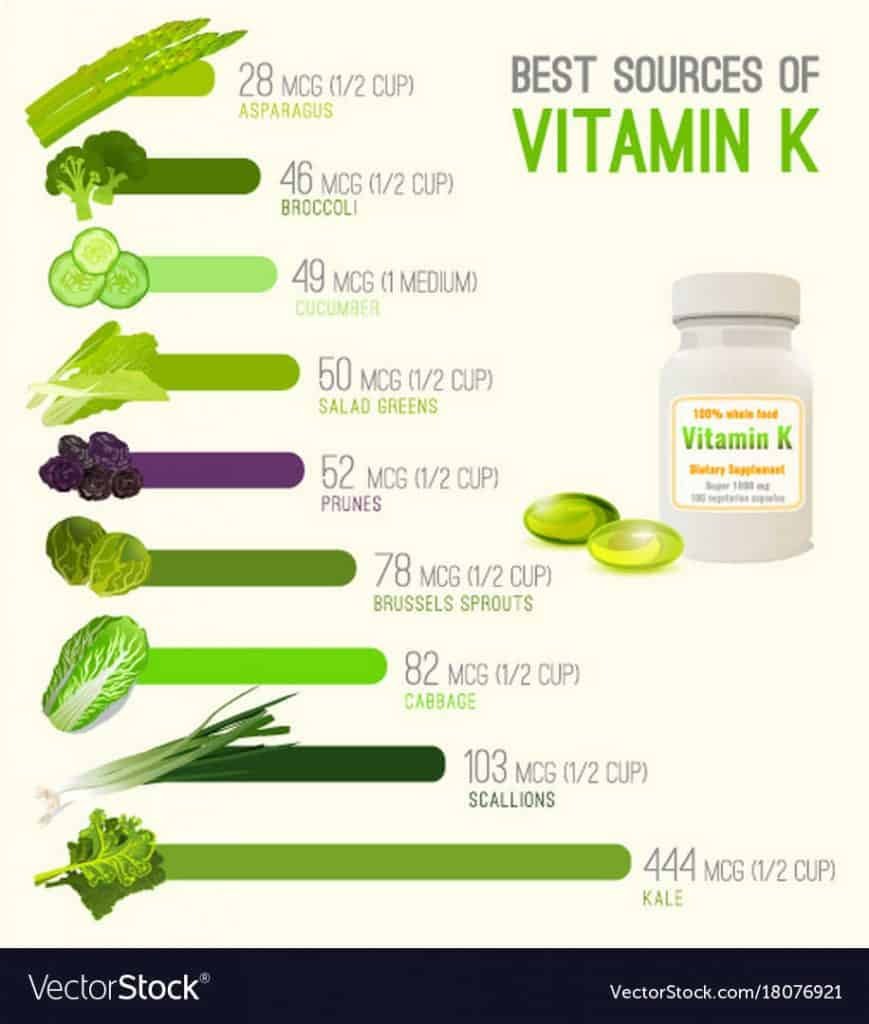
Vitamin K2 is especially beneficial in terms of anti-aging for a couple of reasons. To begin with, it helps to divert calcium into the bones, which can help to strengthen them.
In terms of the skin, though, vitamin K2 is especially beneficial for increasing skin elasticity. It does this by preventing accumulations of calcium in elastin within the skin.
Elastin is responsible for giving skin its stretchy elastic properties. The more elastin you have, and the healthier it is, the more stretchy and elastic the skin becomes. This is very important because low levels of elastin mean that your skin is likely to look saggy and it will be more prone to wrinkles.
On top of that, the vitamin also helps to strengthen the immune system, and a healthy immune system means that you’ll be less prone to illness and disease.
12. Vitamin C
Vitamin C is probably the most common and well-known vitamin on our list today. When we think of vitamin C, we instantly think of the immune system. Vitamin C strengthens immunity and helps to keep you healthy, but it does so much more as well.
Many dermatologists and beauticians will use and prescribe vitamin C serums when it comes to reducing the signs of aging.
Vitamin C is a water-soluble vitamin that functions as a powerful antioxidant. Due to this reason, it helps the skin to regenerate itself and it encourages the synthesis of new and healthy skin cells. Dead, damaged, or unhealthy skin cells will give your skin an unhealthy appearance and will sap it of color and moisture.
As it is an antioxidant, it helps to prevent damage to the cells, including those found in the skin, caused by oxidative stress. This, in turn, will help to keep your skin firm, stretchy, hydrated, and healthy-looking. Vitamin C is also useful as it contains active ingredients that have been found to inhibit the production of melanin.
Melanin can cause the skin to look discolored and to develop dark spots and patches, that can make people look older than they actually are.
13. Zinc
Zinc is a mineral that plays an important role in numerous physiological processes going on within the human body. It’s a trace mineral, which means that we only need a small amount, that is found within each and every single cell in your body.
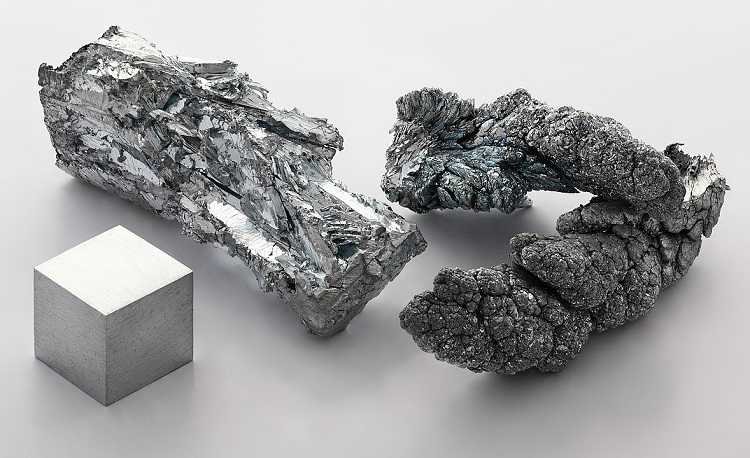
Zinc boosts the immune system and helps fight and prevent illness and disease. It also contributes to optimal hormone production and generation.
In terms of the skin and your appearance, though, Zinc is very important because of zinc functions as an antioxidant that can protect your cells. Cells such as those responsible for generating collagen, for example.
Collagen is basically the foundation for your skin, and the more you have, the plumper and fuller the skin looks, and the firmer it becomes.
Zinc also promotes the production of new and healthy skin cells to replace damaged, dead, and unhealthy ones. In fact, your skin relies heavily on zinc for everything from wound healing and rejuvenation, to the functioning of healthy cell membranes. Zinc supplements are inexpensive and work extremely well.
Read Also: 6 Best Supplements For Glowing Skin
14. Copper Peptides
Copper is another trace mineral that people often don’t realize is essential for optimal health and wellbeing. Many people consider copper to be one of the unsung heroes of the anti-aging world, and once you see the many benefits it provides, you’ll understand why that is.
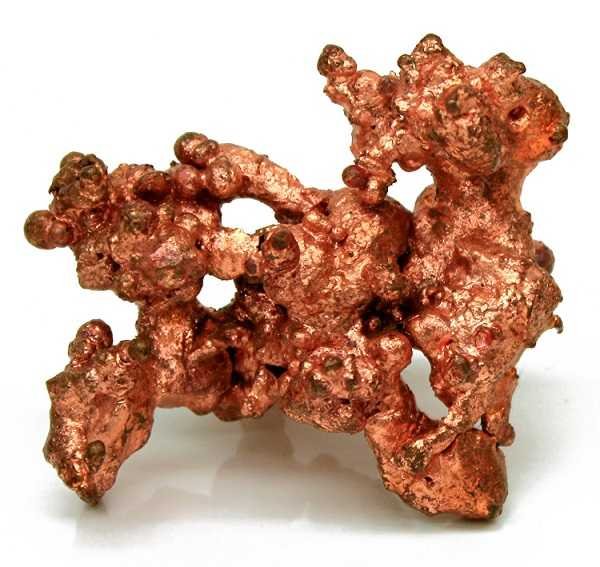
Copper peptides are now commonly used in the world of beauty and cosmetics, primarily due to their collagen-stimulating properties. Collagen helps to firm up the skin, give it moisture, plump it up, and help it look full and wrinkle-free.
The more collagen we produce, the healthier our skin will look. Copper has been found to help stimulate the production and secretion of collagen, making it great for those of you looking to enjoy smooth and healthy-looking skin.
But how does it do this?
Well, copper has been found to help activate certain enzymes, including one known as lysyl oxidase, which is responsible for the production of collagen and elastin. This, therefore, plumps up the skin, fills it out and helps to increase its elasticity, making it ideal for reducing wrinkles.
⚠️ According to WebMD.com Copper is POSSIBLY UNSAFE when taken by mouth in large amounts. Adults should consume no more than 10 mg of copper per day. 1mg of copper per day covers 100% of your DV. Symptoms of copper overdose include nausea, vomiting, bloody diarrhea, fever, stomach pain, low blood pressure, anemia, and heart problems.
15. Fisetin
Fisetin is a natural antioxidant found in fruits like strawberries, apples, and persimmons. What makes it special is its ability to act as a senolytic — meaning it helps the body find and clear out old, damaged cells that no longer work properly.
These “zombie” cells build up with age and release harmful chemicals that cause inflammation and tissue damage.
Studies in mice, like one published in EBioMedicine (2018), showed that Fisetin not only reduced the number of these bad cells but also improved health and even extended lifespan. Early human research is now exploring if these results can be repeated in people.
Read Also: Glutathione holds the key to managing over 100 autoimmune diseases known today
16. Acetyl-L-carnitine
Up next we have acetyl L-carnitine. This is an amino acid that helps to promote healthy cells throughout the body. The amino acid is commonly found in a number of anti-aging supplements, but why?
Well, Acetyl-L-Carnitine has been found to improve cognitive health and function, making it great for the brain. As you may be aware, brain health and function often slows down as we grow older, so looking after the brain is very important.
It also helps to shuttle essential fatty acids into the mitochondria of your cells. This helps to keep your cells healthy and it increases the production of energy. This means that the amino acid helps keep your cells healthy, including your skin cells, which will help you to appear youthful.
Combine this with the brain-boosting effects of Acetyl-L-Carnitine, and it’s easy to see why it’s such a popular anti-aging supplement.
17. Collagen Peptides
Collagen is the skin’s primary structural protein, providing firmness and elasticity. Natural production declines with age, dropping by about 1% per year after our mid-twenties, leading to wrinkles and sagging.
While collagen is a large protein, Collagen Peptides (also called hydrolyzed collagen) are created by breaking down these large collagen molecules into much smaller, specific chains of amino acids. This smaller size makes them significantly easier for your digestive system to absorb and utilize compared to ingesting whole, native collagen. This superior bioavailability is why peptides are the preferred form for effective supplementation.
Scientific studies suggest supplementing with these peptides provides the body with readily available amino acid building blocks and acts as a signal, stimulating fibroblast cells to ramp up your own natural collagen production. Numerous clinical trials and systematic reviews consistently demonstrate that regular intake can lead to measurable improvements in skin hydration, increased elasticity, and a visible reduction in wrinkle depth, often within a few months.
By directly supporting the skin’s structural integrity from within through enhanced absorption and signaling, collagen peptides are considered a top evidence-based approach for maintaining a youthful appearance, making them a “best” choice.
18. Urolithin A
Urolithin A tackles aging at a fundamental cellular level by targeting mitochondria – often called the “powerhouses” of our cells because they generate most cellular energy (ATP). Beyond just energy, healthy mitochondria are crucial for regulating cell metabolism, signaling, and survival. However, mitochondrial function inevitably declines with age; they accumulate damage, become less efficient, and their numbers may decrease. This decline is considered a key hallmark of the aging process, contributing to reduced vitality and age-related functional decline across various tissues.
Urolithin A offers a unique approach. It’s not typically consumed directly; rather, it’s a natural metabolite produced by specific gut bacteria when they process compounds called ellagitannins found in foods like pomegranates, berries, and nuts (though individual production varies greatly). Whether from gut conversion or direct supplementation, Urolithin A promotes mitophagy. Think of mitophagy as the cell’s essential quality control system for mitochondria – the process of selectively clearing out damaged or dysfunctional ones to make way for healthy renewal.
Scientific research indicates this targeted cellular cleanup supports improved overall mitochondrial health. Studies have shown particular promise in enhancing muscle function and endurance – tissues highly dependent on mitochondrial energy – which often significantly decline with age. By rejuvenating the cell’s energy production and waste management systems, Urolithin A’s role in cellular energy and renewal makes it a compelling “best” contender in anti-aging strategies.
19. Ubiquinol COQ10
Ubiquinol (CoQ10-H2) is a type of COQ10 which is found to be a bit more active compound in your body. Only after you take CoQ10 (ubiquinone) does your body convert it to the active form, ubiquinol (source).
Ubiquinol helps to protect your skin cells from oxidative stress and damage. It gives your skin cell mitochondria, the energy they need to promote energy in order to function correctly.
Healthy skin cells generating plenty of energy will, therefore, give you a more youthful and healthier complexion. When we are younger, mitochondria generate energy with the help of oxygen. As we grow older, mitochondria pathways change, and skin cells, in fact, don’t get their energy from mitochondria at all.
This shift in pathways is thought to damage skin cells, which in turn causes the skin to become unhealthy. The end results in lines, wrinkles, and sagging skin. According to research COQ10 improves mitochondria function and enables your skin cells to get their energy in this way once more.
20. NAD supplements
NAD+ (Nicotinamide Adenine Dinucleotide) is a vital coenzyme essential for hundreds of cellular processes, including energy production (ATP synthesis) and DNA repair. Crucially, NAD+ levels naturally decline significantly with age; studies suggest levels can drop by as much as 50% between the ages of 40 and 60, continuing to decrease thereafter. This decline is strongly linked to many age-related health issues and is considered a hallmark of the aging process.
Supplements like Nicotinamide Riboside (NR) and Nicotinamide Mononucleotide (NMN) act as precursors, providing the raw materials the body uses to synthesize and restore higher NAD+ levels. Research, initially promising in animal models and now increasingly confirmed in human trials, shows these precursors can effectively boost NAD+ concentrations in various tissues.
Higher NAD+ levels fuel cellular energy and are essential for activating sirtuins – a class of proteins crucial for cellular defense, stress resistance, repair pathways, and potentially longevity. Researchers like Dr. David Sinclair at Harvard Medical School have been prominent figures highlighting the critical role of NAD+ and sirtuins in the biology of aging.
By supporting fundamental cellular maintenance and energy systems that weaken with age, NAD+ boosters are considered a key anti-aging strategy, with ongoing research exploring benefits for overall vitality, metabolic health, and potentially cognitive function.
21. Rapamycin
Rapamycin is a lab-made drug first discovered in soil bacteria on Easter Island. It was originally used to help organ transplant patients by calming the immune system. Scientists later found it blocks the mTOR pathway, which controls cell growth and aging.
Animal studies, including one in Nature (2009), found that Rapamycin could significantly extend the lifespan of mice even when given later in life. Early human trials are investigating its potential to delay age-related diseases like Alzheimer’s and heart disease.
22. Omega-3 fatty acids
Last, but certainly not least, we have omega-3 fatty acids. Omega-3 fatty acids play crucial roles in countless physiological processes. They help promote cardiovascular health, they’re great for the joints, they improve memory and cognitive health, and they’re very potent anti-inflammatories.
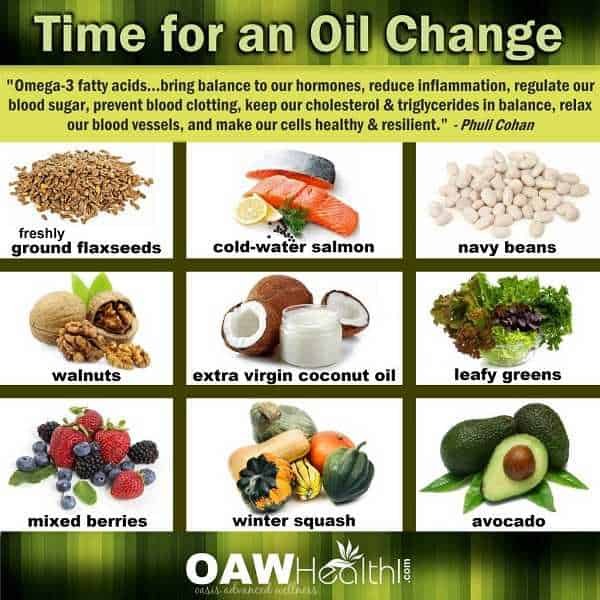
These healthy fats keep your cell membranes strong and healthy. The membrane influences the cell’s ability to hold and to retain water. The more water the skin cells hold, the firmer, fuller, and plumper the skin will look.
Not only that, but it will also be hydrated and so it provides natural moisturizing benefits. As omega-3 fatty acids are anti-inflammatories, they reduce the production of inflammatory compounds that are involved in the aging process. Again, this can influence how the skin looks and how it feels.
Bottom Line
A long list isn’t it? Before I close down this article, I just need to emphasize on the fact that if you don’t exercise and in general follow a healthy lifestyle, these supplements will now help much. Now, if you exercise, follow a healthy lifestyle and take these supplements (maybe some of them at least) then you will see tremendous results.
If you enjoyed reading my article about the Best Antiaging Supplements, then I would really appreciate if you shared the article. It means a lot to me.
Read Next



